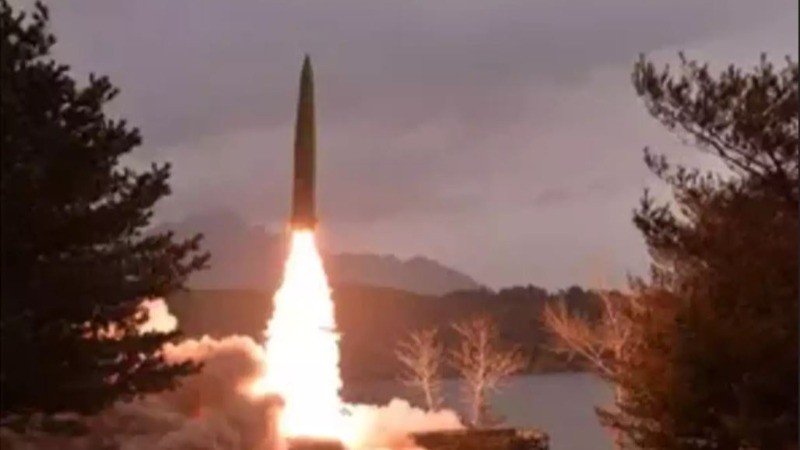
In a major development raising global security concerns, Russia plans to share advanced satellite technology with North Korea. This revelation comes amidst rising cooperation between Moscow and Pyongyang in military and space domains, prompting sharp rebukes from the United States and its allies.
Missile Test Amid Diplomatic Meetings
On Monday, North Korea fired a ballistic missile into the sea during a visit by Antony Blinken, the US Secy of State to South Korea. The timing of the launch underscored Pyongyang's defiance and drew immediate condemnation. Speaking at a joint press conference with South Korean Foreign Minister Cho Tae-yul, Blinken called the missile test "another violation of multiple UN Security Council resolutions."
The missile reportedly traveled approximately 1,100 kilometers (680 miles) before crashing into the sea. In response, South Korea's military enhanced surveillance and coordination efforts with the United States and Japan to monitor further provocations.
Russia-North Korea Space Collaboration
During the press briefing, Blinken accused Russia of deepening its collaboration with North Korea in space technology. He stated, "The DPRK is already receiving Russian military equipment and training. This growing alliance has heightened concerns about the potential transfer of sensitive technologies that could strengthen North Korea's missile and reconnaissance capabilities.
Political Unrest in South Korea
Blinken's visit coincided with political turbulence in South Korea. Impeached conservative President Yoon Suk Yeol, who previously attempted to impose martial law, remains confined to his residence as investigators seek his arrest. The acting president, Choi Sang-mok, assured Blinken of South Korea's commitment to its alliances and the principles outlined in the Camp David summit of 2023.
Choi emphasized that South Korea would uphold strong diplomatic and security policies based on the Korea-U.S. alliance and trilateral cooperation with Japan. Despite ongoing domestic political unrest, the acting administration pledged to maintain its stance against North Korean provocations.
Historical Context and Future Implications
The latest missile launch and Russia's growing collaboration with North Korea come at a time of significant political transitions in both the United States and South Korea. President-elect Donald Trump, set to assume office on January 20, has historically adopted unconventional approaches to North Korea, including direct diplomacy with its leader Kim Jong Un.
Under Trump's previous administration, relations with North Korea saw dramatic shifts, ranging from threats of "fire and fury" to personal meetings that symbolized a brief thaw in hostilities. Analysts are closely watching how the incoming administration will navigate these evolving geopolitical dynamics.
The partnership between Russia and North Korea, coupled with Pyongyang's ongoing missile tests, presents a multifaceted challenge for global stability. As tensions rise in the region, the international community remains focused on the responses of the United States, South Korea, and Japan to counter these developments effectively.